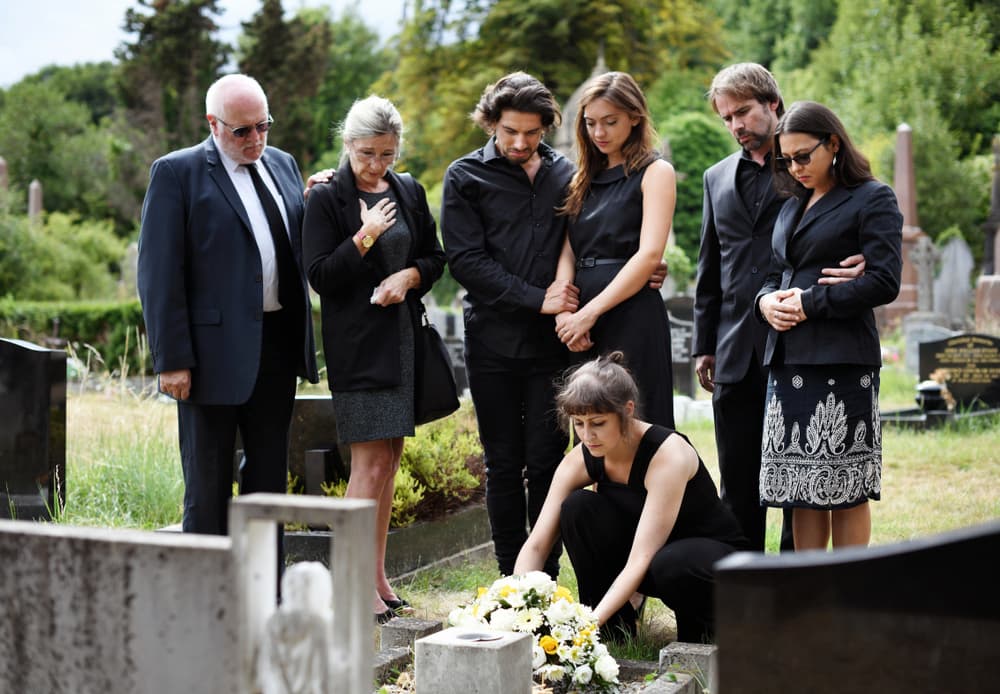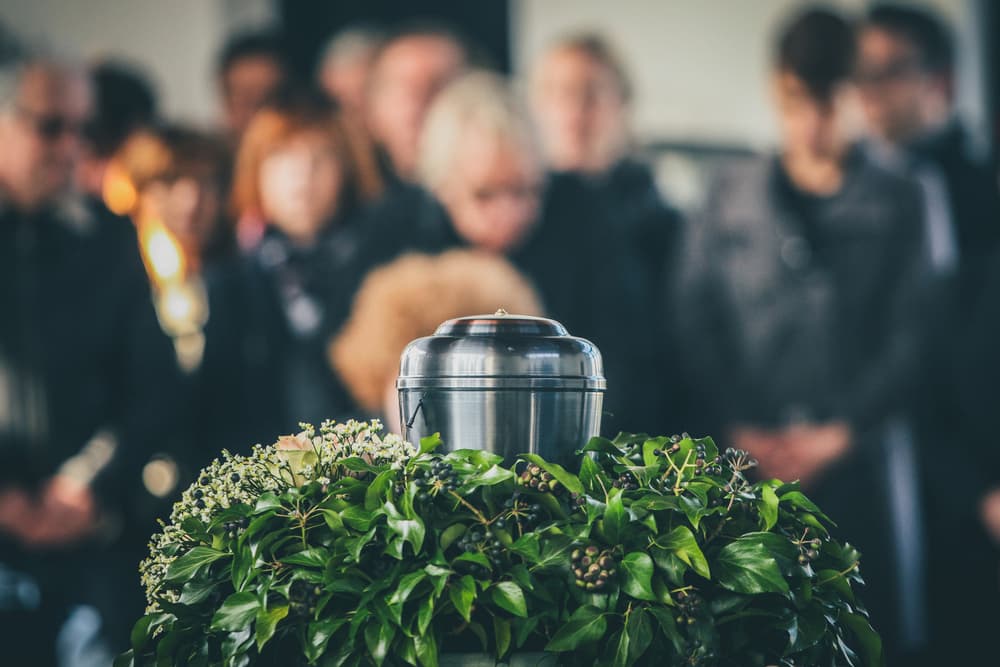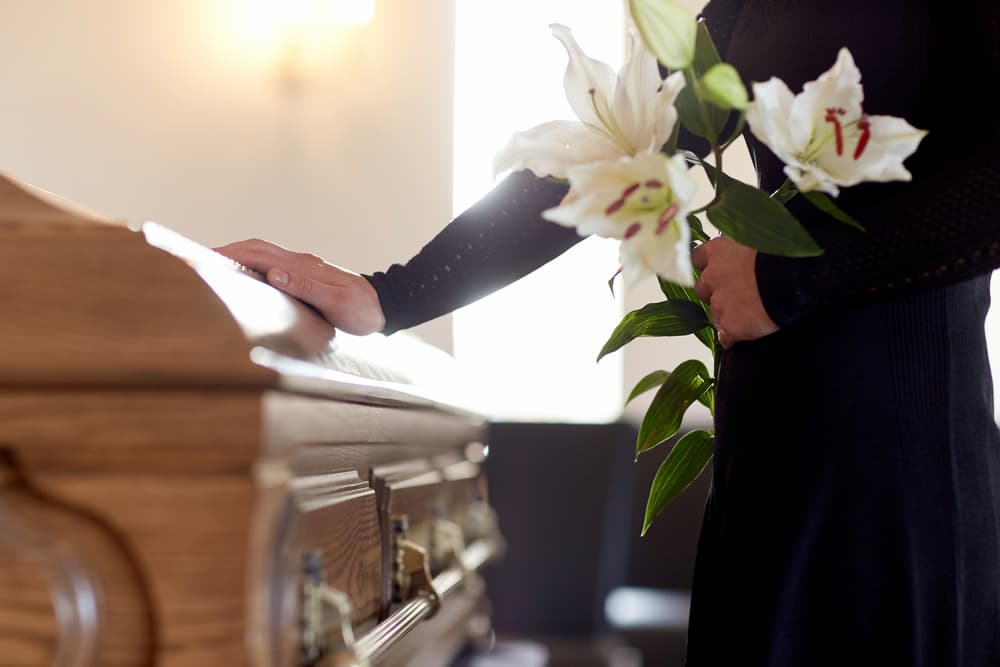Funeral Service
For most of us, our first experience with the funeral process will come after the death of a loved one. Society's understanding of funerals is largely limited to what is portrayed on television and in movies.
One of the most important things to understand about funerals is that each one is unique. From religious beliefs and cultures to geographical location and life experiences, many factors shape individual funeral services. But despite the marked differences, all funerals have one thing in common: they provide friends and family with the opportunity to honor, celebrate, and mourn their loved one.

Image Source: Rawpixel.com /Shutterstock
What is a Funeral Service?
A funeral service is any structured ceremony marking an individual's passing. Generally, it is representative of the powerful rite of passage that occurs when a person passes away. Not only does it involve the deceased, but also the loved ones that remain behind.
A funeral service can take many forms, and no two funerals are exactly alike. There are no "rules" that limit what a funeral can look like - and you should feel free to create an event that authentically represents your loved one.
Types of Funeral Services
However, it can be helpful to know the general options that are available when you are planning a funeral:
- A visitation (sometimes called a "wake" or "viewing") is a service in which guests can pay their respects and view the deceased's casketed body. It takes place before the main funeral service and can be extremely valuable for those pursuing a sense of closure.
- Traditional funeral services are often held at a funeral home, church, or the individual's graveside. These services may include a eulogy, prayer, music, or reading of religious or literary passages.
- A committal service (also called a graveside service) may take place if the deceased wishes are to be buried. This service can involve a vehicle procession to the chosen cemetery, a service, and the placement of the casket in the grave or vault for burial.
- A memorial service takes place without the body present, intended to be a ceremonious commemoration of the deceased individual's life.
- Cremation services are an option for an individual that has requested cremation upon their passing. Depending on the wishes of the family and the deceased, the cremated remains may be scattered in a meaningful location or placed in an urn. A family may have a full-service cremation, which involves a pre-cremation viewing, a funeral service, and a cremation service.
- A direct burial is an option for families who want to bury their loved one but prefer not to have a traditional service. In a direct burial, a privately-arranged memorial service may still take place.

Image Source: Anze Furlan /Shutterstock
Why Have a Funeral?
A funeral's primary functions are to acknowledge an individual's
death (and life) and provide an opportunity for
grieving family members and friends to gather together and support each other. But beyond that, there are so many reasons to consider a funeral.
No matter what form the funeral may take, it can serve crucial purposes such as:
- Providing closure for grieving loved ones
- Celebrating treasured memories
- Honoring the deceased
- Helping friends and families process grief and transition into a new stage of life
- Offering support for the family of the deceased
- Expressing emotions
- Finding meaning and purpose
Not only is a funeral a wonderful way to pay tribute to the deceased, but it can also represent an important step in the grieving journey.
The Funeral Planning Process
Planning a funeral can seem like a monumental task, especially if you are in the midst of grieving. Here is a basic guide that breaks down how to plan a funeral so you can navigate the process more easily.
Pre-Plan: Begin the Process
Many people choose to
pre-plan their funeral, making arrangements for their future passing. Although it is a sensitive topic, considering your funeral can be one of the best decisions, you make for yourself and your family. This can be an excellent way to document your wishes and provide comfort and relief to your loved ones who will be grieving after your death.
Steps involved in pre-arranging a funeral may include:
- Meeting with a funeral director to gain a clear understanding of your options.
- Documenting your ideas/preferences for your funeral service, including cemetery choice, readings or songs, and preferred location, among other preferences.
- Selecting a casket or urn
- Paying in advance for your funeral, burial, and other planned wishes (if desired)
- Providing a trusted loved one with all relevant details and documents
When a Death Occurs
Very few of us know what to expect when a loved one passes away. But if you can learn more about the process, it can help combat the fear of the unknown.
Here are some key actions that typically take place immediately following a death:
- Steps will be taken to contact the selected funeral home.
- If the individual passes at a hospital or while on hospice, staff can provide you with information regarding when a funeral director can be contacted.
- When you speak with the funeral home, staff may ask you a handful of questions to arrange transport and preparation, such as:
- Are there any pre-arrangements made with our funeral home?
- Has the body been released by medical/emergency personnel?
- Are there any family members that would like to view the deceased before transport?
- Is there a specific date/time you would like the funeral home staff to arrive?
- Has embalming or cremation been requested?
- What details can you provide about the deceased such as physical size, location, etc.?
- Would you like to send any items (clothes, photos, jewelry, etc.) with the deceased?
- Whom would you like to serve as the point of contact?
- Would you like us to contact a church or clergy member on your behalf?
Remember that the funeral home staff is there to support you through this challenging experience, so do not hesitate to ask questions as needed.

Image Source: Ground Picture /Shutterstock
Kilpatrick's Rose-Neath Staff is Ready to Help You With Services for All Needs
Regardless of the type of funeral service you feel is right for your loved one, choosing an excellent provider makes a world of difference.
Since 1932, Kilpatrick's Rose-Neath Funeral Homes has been honored to serve families needing funeral services in Louisiana. We are dedicated to helping you celebrate your loved one in a meaningful and memorable way, creating personalized services that represent their achievements, values, personality, and more.
Services We Offer
Our available services include:
Kilpatrick's Rose-Neath Funeral Home Locations
With twelve locations across Northwest LA,
Kilpatrick's Rose-Neath Funeral Homes, Crematorium, and Cemeteries have provided compassionate care to countless families in our region.
Large Enough to Serve Your Funeral Needs, Small Enough to Care About Every Detail
For assistance in planning your loved one's funeral service or more information about our LA funeral homes' services, please
contact Kilpatrick's Rose-Neath Funeral Homes today.


